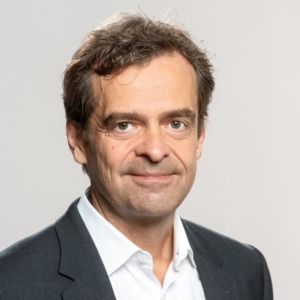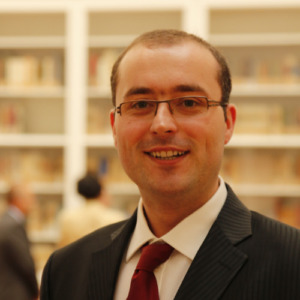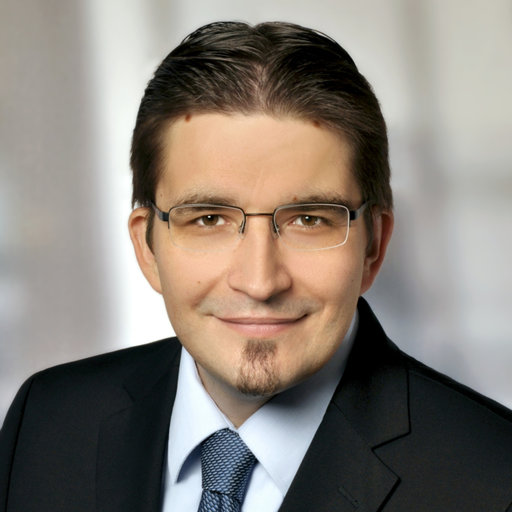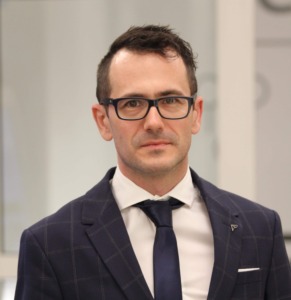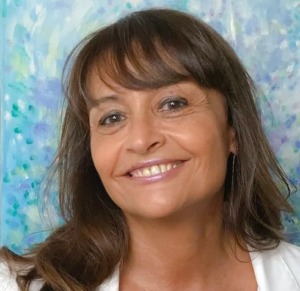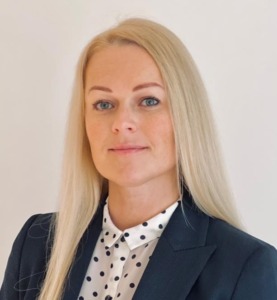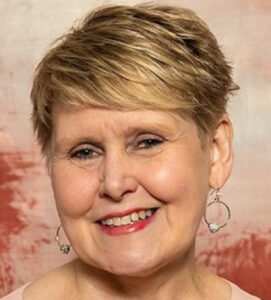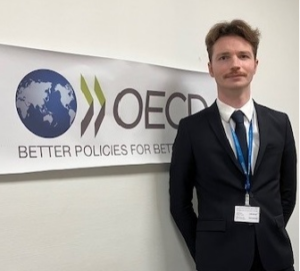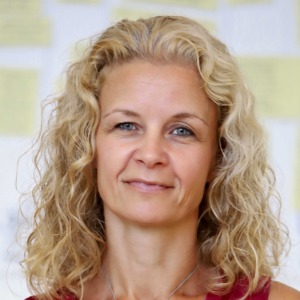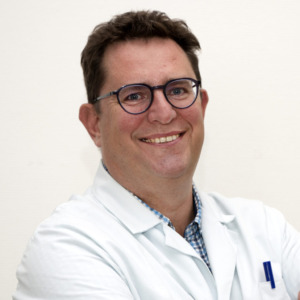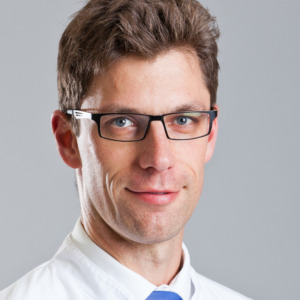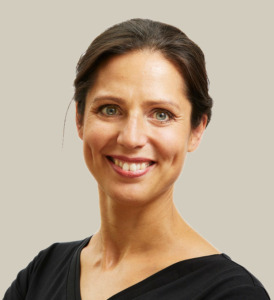PATIENT SAFETY
CONFERENCE 2025
Rethinking patient safety: Evolving roles and responsibilities
in a changing healthcare landscape
Panel Discussions
Room: FESTSAAL
- Healthcare Worker Well-being and Safety
- Safe Home-Based Care
- Governance
- Nurses and Patient Safety
- Humanity In Care
Beyond wishful thinking: Innovation as a meaningful driver of patient safety
Innovation is often presented as a driver of safer care and more resilient health systems. But in today’s rapidly changing healthcare landscape, the reality is more complex. Breakthrough technologies may hold great potential, but their impact on patient safety and workforce resilience depends on whether they can be developed and implemented in ways that reflect real-world constraints, such as health workforce shortages and growing demands of care.
This session moves beyond wishful thinking to explore what it takes for innovation to become a meaningful driver of safety. Achieving this requires us to understand the constraints that the different stakeholders of patient safety have to adapt to. For those who carry responsibility of care, it demands recognition of the structural barriers they face in practice, including efficiency pressures and fatigue, all of which limit their capacity to uptake and effectively implement innovation. Patient organisations, for their part, play a crucial role in shaping and evaluating innovation, but they increasingly struggle to secure sustainable, independent funding, which limits their ability to remain fully engaged and credible voices in safety and policy debates. Meanwhile, industry actors are under pressure to align with value-based care models, demonstrating real-world outcomes and system-wide benefits. In this context, stronger collaboration and better alignment between stakeholders, from those who design technologies to those who deliver care and those who represent patients, seems the only way towards delivering safer care and better outcomes.
Key Questions:
- What does it take for innovation to become a meaningful driver of patient safety in real-world healthcare settings?
- How can healthcare professionals be supported to adopt innovation safely amid workforce shortages and operational stress?
- How can patient organisations remain independent and actively involved in shaping innovation, despite declining financial support?
- Under which conditions can cardiovascular health become a model for collaborative, patient-centred innovation?
Speakers:
Director of Clinic for Anaesthesiology and Intensive Care Medicine, TUM Klinikum Rechts der Isar (Germany)
Support4Resilience, SHARE – Centre for Resilience in Healthcare, University of Stavanger (Norway)
Senior Vice-President Public Affairs EMEACLA, Edwards Lifesciences (Switzerland)
Additional speakers will be confirmed soon
Training for safe home-based care: Preparing healthcare professionals, patients, and families
As care increasingly shifts from hospitals to homes, patient safety is exposed to new and largely unregulated risks. Informal caregivers – often family members – now carry out medical tasks without clinical training or institutional support. While digital technologies (e.g. wearables, telemonitoring) promise improved coordination, they are no substitute for robust safety strategies and training at the interface of professional and informal care.
This session highlights how ageing populations and systemic healthcare strains contribute to this transition, and it reframes home-based care as a shared safety challenge. The workshop will explore real-world safety risks, emotional consequences for caregivers (such as the double victim phenomenon), and how to build effective training and support structures across all stakeholders – including healthcare institutions, policymakers, and patient organisations.
Objectives:
- Understand the patient safety implications of informal care in home settings.
- Identify underrecognized risks such as medication errors, improper mobility support, and communication breakdowns.
- Explore emotional burden and second victim phenomena in caregiving contexts.
- Share models of training and systemic support, including the BetterCare COST Action network.
Key questions:
- What are the primary patient safety risks in home care and informal caregiving?
- How can institutions support caregivers to prevent avoidable harm and emotional fallout?
- What training is needed – for caregivers and professionals alike – to ensure safer transitions and continuity of care?
- How can digital innovation complement, but not replace, relational and institutional safeguards?
Moderators:
Wiesbaden Institute for Healthcare Economics and Patient Safety – WiHelP, EUPSF Affiliate (Germany)
Sociedad Española de Calidad Asistencial – SECA, EUPSF Affiliate (Spain)
Speakers:
COST CA22152 BetterCare (Austria)
COST CA22152 BetterCare (Croatia)
CEO Danish Society for Patient Safety (Denmark)
EUPSF Vice-President, Medtronic, EUPSF Affiliate (Portugal),
Patient safety as a strategic priority in healthcare governance
Many hospitals struggle to integrate patient safety at the same level as financial stability, workforce retention, cybersecurity, and sustainability. Can AI help shift patient safety from methodologies that are mainly reactive to proactive, system-level strategies? Can a learning healthcare system, powered by data, make safety a strategic asset?
This session explores how leadership can combine safety goals with broader organisational priorities.
Key Questions:
- What prevents patient safety from becoming a system-wide strategic goal?
- Can AI and data systems help anticipate and prevent safety incidents?
- How do safety goals intersect with financial and organisational pressures?
Nurses at the forefront of patient safety: Making infection prevention work
Nurses are essential to patient safety, through their presence at the bedside, their early detection of complications, and their coordination of care. Yet their role is rapidly evolving as new technologies, care models, and safety demands reshape healthcare systems. This session will examine how infection prevention, illustrates both the leadership nurses already provide and the systemic barriers they face. It will also reflect on what’s needed: better training, improved recognition and collaboration, access to data, and a stronger voice in system-level safety decisions.
Key Questions:
- How is the role of nurses in patient safety evolving, and what’s driving this change?
- Why does infection prevention make visible the challenges and potential of nursing leadership?
- What barriers limit nurses from leading effectively in infection prevention? (e.g. training, recognition, data systems)
- What concrete steps can institutions and policymakers and industry take to support nursing leadership in this area?
Moderator:
CEO of the Semmelweis Foundation (Austria)
Speakers:
President of European Specialist Nurses Organisation – ESNO (Croatia)
The Order of Nurses, Midwives and Medical Assistants in Romania – OAMGMAMR (Romania)
Aktionsbündnis Patientensicherheit e.V. – APS (Germany)
VP Public Policy and Advocacy Europe, Middle East and Africa, Becton Dickinson – BD (Spain)
Keeping the human at the centre: Strengthening safety and trust through empathy and participation
In healthcare systems under pressure facing digital transformation, staff shortages, and rising patient expectations, the human relationship between patients and professionals remains central to care. This session will explore why it matters to reaffirm the centrality of empathy, listening, and shared decision-making in clinical practice.
By bringing the human dimension to the forefront, these efforts do more than offer emotional comfort; they help improve patient outcomes, reduce misunderstandings, fight disinformation, support adherence to treatment, and ultimately rebuild trust between patients, professionals, and the healthcare system.
Key Questions:
- What does it mean to truly put the human at the centre of care today?
- How do real-world projects succeed in translating this principle into practice?
- What are the effects of strengthening humanity in care for patients, professionals, and the safety of care?
- How can organisations support and scale such efforts, especially in a digitalising environment?
Speakers:
President of the Fundación por la Investigación, Docencia e Innovación en Seguridad del Paciente- FIDISP, EUPSF Affiliate (Spain)
Patient experience expert at Riga East University hospital and Paul’s Stradins University hospital, Latvia and Advisor to Health Minister of Latvia (Latvia)
EUPSF Board Member, The Order of Nurses, Midwives and Medical Assistants in Romania – OAMGMAMR (Romania)
Additional speakers will be confirmed soon
Interactive Plenary Sessions
Room: FESTSAAL
Butterfly Impact Award 2025: Small actions, Big Changes in Patient Safety
At the occasion of the 2025 edition of the Patient Safety Conference we are organising the second edition of the Butterfly Impact Award: Small actions, Big Changes in Patient Safety, aimed at recognising outstanding contributions to patient safety. Read more
During this session three finalists will present their projects and the audience will decide about the ranking of the finalists through the interactive voting at the end of the session.
Moderator:
EUPSF President, Founder of FOKUS Patient (Sweden)
The risks and potential of data-driven healthcare
Digital health, AI, and electronic health records offer both risks and opportunities. While data security and interoperability are essential, there’s growing potential for using data to anticipate risks, tailor care, and inform system-wide learning. However, concerns about privacy and data ownership remain crucial.
Key Questions:
- What safeguards are needed for secure, ethical use of patient data?
- How can patient data be used to improve safety and personalise care?
- Who owns patient data, and how should access and control be managed?
Simulation in Healthcare: Unlocking Potential to Improve Patient Safety
Simulation offers healthcare professionals a unique, protected space to develop and improve both technical and non-technical skills, without putting patients at risk. This session will present the latest and foreseable developments in high-quality simulation and explore why simulation is a natural ally for advancing patient safety across diverse healthcare environments.
Building on the insights from a dedicated workshop held the day before, the session invites the audience to engage interactively: What potential do they see for simulation to improve patient safety? What barriers to expect when promoting it in their environments? And what strategies or resources would help integrate simulation more effectively?
Key Questions:
- What is the current and foreseable potential of simulation to improve patient safety?
- What barriers to expect when trying to promote the use of simulation in their working environment or networks?
- What strategies, resources, or partnerships could help overcome these barriers and foster the integration of simulation into everyday patient safety efforts?
Lectures
Room: FESTSAAL
The economics of diagnostic safety
This lecture will present findings from recent OECD research on the economics of diagnostic safety and explore how diagnostic errors impact health outcomes and system costs, and why investing in safer diagnostic practices is both a clinical and economic imperative. The session will highlight key data, policy insights, and practical implications for health systems aiming to improve diagnostic accuracy and efficiency.
Speaker:
Health Policy Analyst at OECD (France)
From concern to action: Launching a national collaborative FFT campaign
This lecture will present how the national version of the European collaborative Fighting Fatigue Together campaign has been brought to life, adapted to the local context. It will offer a real-time case study on how to build a multi-stakeholder initiative from the ground up: engaging partners, shaping messages, and linking healthcare workforce well-being to broader patient safety concerns. The session aims to inspire similar efforts across Europe by showing what it takes to move from idea to action at national level.
SAFEST – Enhancing Patient Safety in Perioperative Care
This lecture will present the SAFEST project, a Horizon Europe-funded initiative focused on enhancing patient safety in perioperative care. The session will introduce the project’s key objectives and activities aimed at improving surgical outcomes through better training, teamwork, and system-level learning. Attendees will gain insights into how SAFEST supports safer perioperative practices across Europe by promoting innovation, collaboration, and evidence-based improvements.
Workshops
Room: LOFT ROOMS
Supporting Healthcare Professionals After Adverse Events: Peer Support for Second Victims
The Second Victim Phenomenon is increasingly recognised as a major patient safety and healthcare workforce wellbeing challenge. This workshop, following up on the BIAPS 2024 award-winning project, will present practical European implementation projects on peer support for healthcare professionals affected by adverse events. The aim is to share scalable, proven models and stimulate discussion on transferability.
Workshop Objectives:
- Raise awareness about the Second Victim Phenomenon as a critical issue for both patient safety and healthcare workforce wellbeing.
- Present concrete, scalable peer support models implemented in different European healthcare settings.
- Explore key enablers and challenges in developing local and national second victim support systems.
- Stimulate exchange on the transferability of peer support approaches across contexts and countries.
- Encourage participants to reflect on opportunities to strengthen psychological support structures within their own institutions or systems.
Moderator:
Wiesbaden Institute for Healthcare Economics and Patient Safety – WiHelP, EUPSF Affiliate (Germany)
Speaker:
Sociedad Española de Calidad Asistencial – SECA, EUPSF Affiliate (Spain)
Psychischen Ersten Hilfe (PEH) – Psychological first aid, Vienna (Austria)
The Buddy Project (Denmark)
Strengthening Incident Reporting Systems in a Transforming Healthcare Environment
Incident reporting remains central to patient safety but needs adaptation. This workshop discusses how to revitalise reporting systems to support learning, include digital and home-based care, and maintain a just culture across settings.
Key Questions:
- How do we increase reporting without increasing blame?
- How can incident reporting evolve to include digital and home-based care?
- How can these systems better inform proactive safety management?
Moderator:
EUPSF Policy Advisor (Belgium)
Speakers:
CEO Danish Society for Patient Safety (Denmark)
Sociedad Española de Calidad Asistencial – SECA, EUPSF Affiliate (Spain)
EUPSF Advisory Board Member, Member of the national steering committee of the national incident reporting platform – CIRRNET (Switzerland)
Additional speakers will be confirmed soon
Rethinking pre-operative liquid fasting practices
Preoperative fasting is a routine clinical practice affecting millions of patients each year, yet emerging evidence shows that unnecessarily prolonged fasting, particularly for clear liquids, can harm patient well-being and safety.
This panel, followed by an audience discussion will open with a brief overview of the existing guidelines and consensus recommendations on preoperative liquid fasting and the evidence behind them, highlighting both successful implementation examples and persistent barriers.
The audience discussion will focus on practical solutions and explore what support, at institutional, national, or EU level, is needed to modernise fasting practices and make them more patient-centred, evidence-based, and safe.
Workshop Objectives:
- Provide a brief overview of the current evidence and consensus on preoperative fasting
- Identify barriers to updating fasting practices and improving adherence to guidelines
- Exchange practical ideas for overcoming those barriers
- Define the types of institutional or policy-level support needed for change
Moderators:
Helios Klinikum Emil von Behring in Berlin Germany; BIAPS 2024, 2nd Prize Winner (Germany)
Helios Klinikum Emil von Behring in Berlin Germany; BIAPS 2024, 2nd Prize Winner (Germany)
Patient Blood Management (PBM): A transversal patient safety challenge
Blood management spans multiple safety-critical steps: from donation to storage, administration, and documentation.
This workshop will review systemic risks and good practices to secure patient safety across this lifecycle.
Key Questions:
- What are the weak points in blood use and management from a safety perspective?
- How can hospitals coordinate across departments to ensure secure blood handling?
- What role does communication and technology play in reducing transfusion errors?
Moderator:
EUPSF Affiliate (Germany)
Speakers:
Chair, NATA Online (France)
Chair of the Scientific Committee, NATA Online (Germany)
Additional speakers will be confirmed soon
Elevating nursing leadership in Patient Safety: Priorities, needs, and opportunities
Nurses play a critical role in ensuring patient safety, yet their potential is often under-recognised and under-supported. This workshop will explore the insights and discuss what is needed to strengthen nursing leadership in safety initiatives. Participants will reflect on the barriers nurses face, the support they require, and how their frontline experience can shape stronger safety systems at every level.
Key Questions:
- What patient safety priorities are emerging from specialist nursing practice?
- What support, resources, and conditions are needed for nurses to lead safety improvements?
- How can nursing expertise be better integrated into national and European patient safety strategies?
Moderator:
EUPSF General Secretary (Belgium)
Speakers:
EUPSF Affiliate (Austria)
Fighting Fatigue Together: Addressing Fatigue to Protect Wellbeing and Patient Safety
Fatigue is a major but often underestimated risk in healthcare, impacting both sta< wellbeing and patient safety. This workshop will provide an update on the Fighting Fatigue Together campaign, share insights from the growing European
network, and explore how healthcare systems can move from accepting fatigue as part of everyday practice to recognising it as a risk that must be managed, and ultimately prevented.
Drawing lessons from other high-risk industries, speakers will propose strategies for recognising fatigue as a systemic risk and integrating prevention measures into organisational practices.
Participants will be invited to discuss key priorities and potential actions to create safer, healthier working environmentsfor healthcare professionals.
Speakers:
EUPSF Advisory Board Member (UK)
EUPSF Affiliate (Austria)
The Order of Nurses, Midwives and Medical Assistants in Romania – OAMGMAMR (Romania)
EUPSF Board Member, The Order of Nurses, Midwives and Medical Assistants in Romania – OAMGMAMR (Romania)
President of European Specialist Nurses Organisation – ESNO (Croatia)
Speakers
Trusted by
medical professionals industry leaders government representatives patients
PARTICIPATING ORGANIZATIONS
CONFERENCE PARTNERS


CONFERENCE PROMOTERS

We offer a variety of sponsorship opportunities. If you’re interested in supporting EUPSF 2025 Patient Safety Conference, please contact us at secretariat@eupsf.org for more information.

